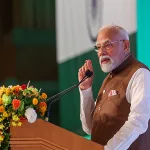The Indian agricultural sector, the bedrock of our economy and the lifeline for millions, stands on the cusp of a significant transformation. The Union Cabinet’s approval on July 16, 2025, of the Pradhan Mantri Dhan-Dhaanya Krishi Yojana (PMDKY) marks not just the launch of another scheme, but a meticulously conceived six-year blueprint for holistic agricultural development.
Commencing from the financial year 2025-26, this pivotal initiative, inspired by the success of NITI Aayog’s Aspirational Districts Programme, promises tangible benefits to approximately 1.7 crore farmers nationwide. The Yojana’s comprehensive vision, targeted implementation, and robust monitoring mechanism offer a powerful antidote to long-standing challenges in the sector, paving the way for a more resilient and prosperous future for our farmers.
The PMDKY’s strength lies in its multi-pronged approach. It rightly prioritizes enhanced agricultural productivity through the adoption of improved farming practices and advanced technologies. Crucially, it champions crop diversification – a vital strategy to boost profitability and mitigate risks associated with monoculture. This includes a resolute emphasis on sustainable agricultural practices that are essential for long-term soil health, water conservation, and a reduction in chemical inputs.
A critical, and often overlooked, aspect addressed by the scheme is post-harvest management. The establishment of better storage facilities at the local Panchayat and Block levels is a welcome intervention designed to significantly minimize post-harvest losses, ensuring farmers receive greater value for their produce. Furthermore, the expansion and enhancement of irrigation facilities will be instrumental in increasing overall farming efficiency.
The Yojana also underscores financial empowerment, facilitating access to both long-term and short-term credit, which will enable farmers to invest in superior seeds, technology, and essential infrastructure. Ultimately, by empowering rural populations with necessary skills, investment opportunities, and technology, PMDKY seeks to promote self-sufficient rural economies and reduce distress migration to urban areas.
A distinctive and commendable feature of PMDKY is its highly targeted implementation strategy. By rolling out the program across 100 districts specifically identified based on low productivity, low cropping intensity, and below-average credit disbursement, the scheme moves beyond superficial metrics to pinpoint and address underlying systemic inefficiencies. This precise selection methodology reflects a sophisticated understanding of agricultural distress.
The operational framework, built on the “3Cs” approach – convergence, collaboration, and robust monitoring – is equally promising. The seamless integration of 36 existing schemes spanning 11 departments, complemented by State-level initiatives and local private sector partnerships, demonstrates a commitment to synergy and efficiency.
The proposed committees at District, State, and National levels, with the crucial inclusion of progressive farmers in District Dhan Dhaanya Samitis, ensure a bottom-up approach to planning and execution. The monthly monitoring of 117 key performance indicators through dashboards, mirroring the Aspirational Districts Programme, introduces a dynamic element of accountability and incentivizes local administrations, building a much-needed sense of ownership and urgency.
The significant financial allocations for specific missions, such as Rs 1,000 crores for pulses, Rs 500 crores for vegetables and fruits, and dedicated funds for high-yielding hybrid seeds and cotton technology, highlight the scheme’s focus on diversification and targeted growth. The envisioned international collaboration for technical and financial support further underscores the ambition to integrate global best practices.
The probable impact of PMDKY is indeed transformative. By directly addressing yield gaps in targeted districts and promoting advanced technologies and practices, the scheme is poised to significantly boost productivity. The emphasis on crop diversification and eco-friendly farming will create more resilient and sustainable agricultural systems. Reduced post-harvest losses, improved access to credit, and the empowerment of rural populations are all set to translate into higher and more stable farm incomes.
By mitigating rural-to-urban migration and creating vibrant, self-sufficient villages, PMDKY is not just an agricultural scheme; it is a vital step towards enhancing national food and nutritional security and building a truly prosperous India. This Yojana is poised to accelerate agricultural development where it is most needed, building on a decade of farmer-centric reforms to build a resilient and prosperous agricultural ecosystem in India.
(The Author is the Vice Chancellor of BRA Bihar University. He is a seasoned academic and dedicated researcher whose work directly translates into tangible benefits for farmers. With nearly three decades of experience in Dairy and Animal Husbandry, his research focuses on practical solutions that empower rural communities)








